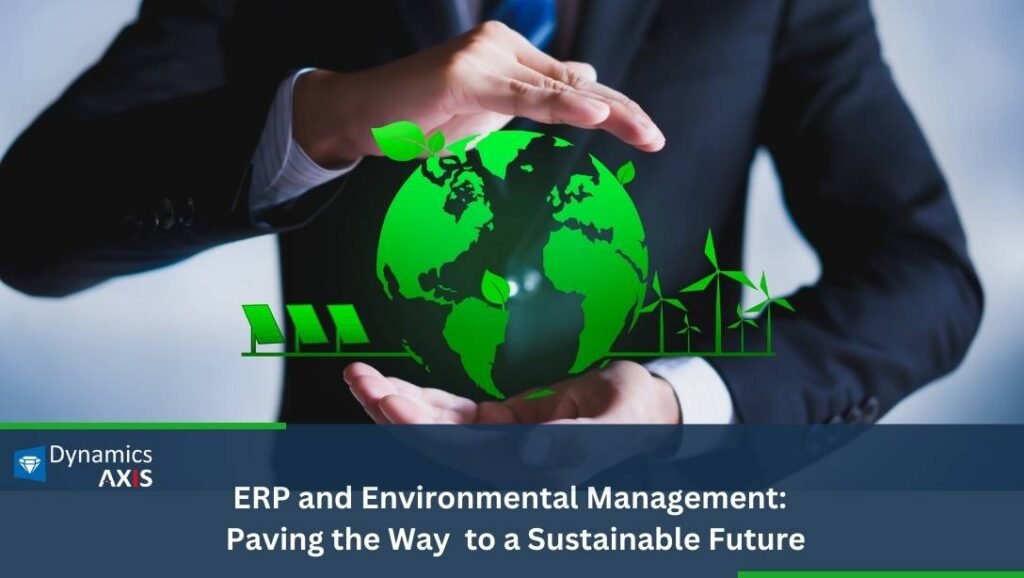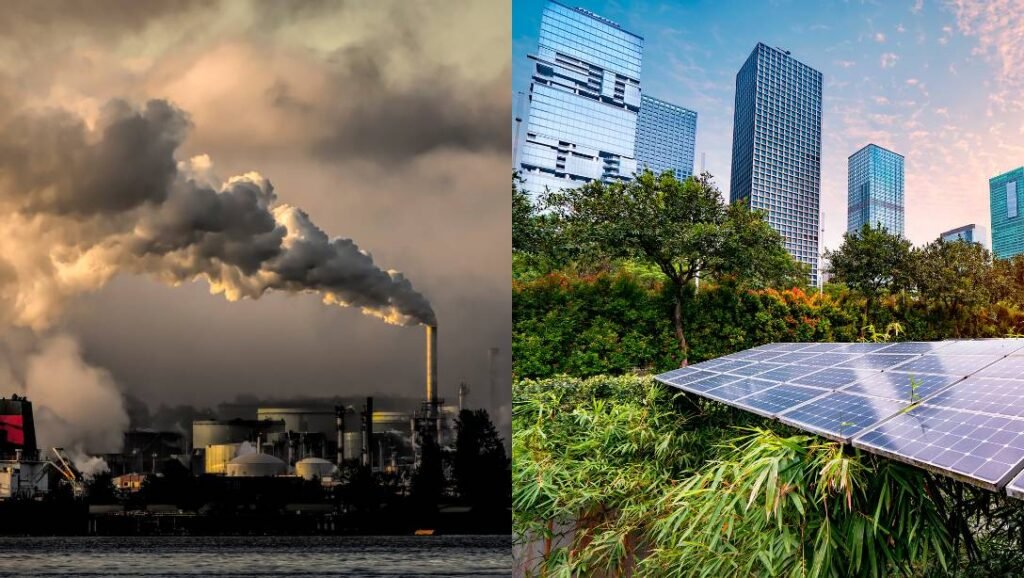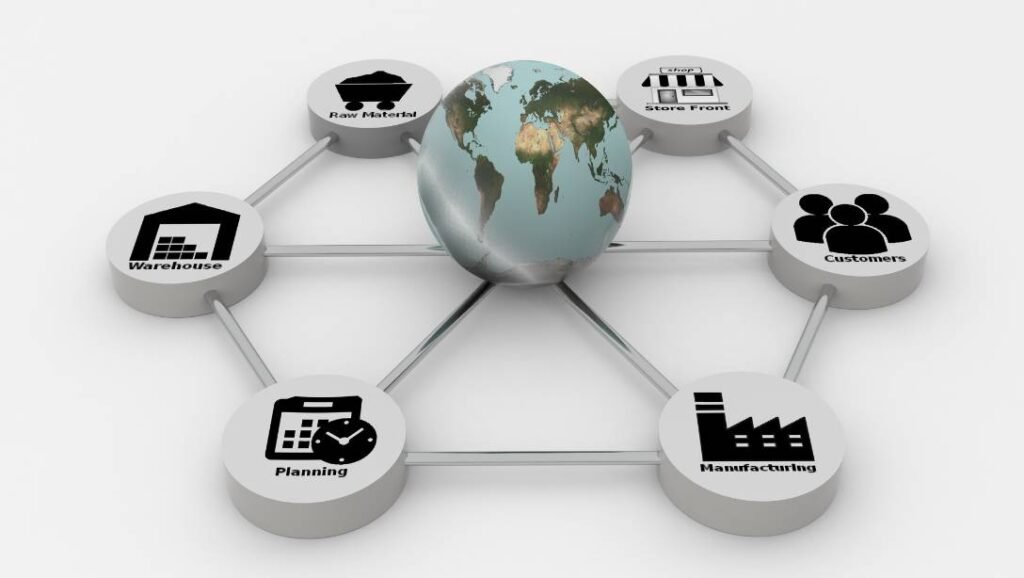ERP and Environmental Management: Paving the Way to a Sustainable Future
ERP and Environmental Management: Paving the Way to a Sustainable Future

In the ever-evolving landscape of business, the integration of ERP (Enterprise Resource Planning) systems has proven transformative. Beyond optimizing operations and enhancing efficiency, ERP is emerging as a powerful tool in championing environmental sustainability. This blog explores how ERP systems are paving the way for a more ecologically responsible future.
The Environmental Impact of Traditional Business Practices

ERP systems are instrumental in reshaping this narrative. By streamlining processes and optimizing resource usage, ERP contributes to a significant reduction in waste generation. This shift towards a more circular economy aligns businesses with sustainable practices, minimizing their impact on the environment.
Energy Efficiency and Emission Reduction with ERP

Conventional energy-intensive practices in businesses often rely on non-renewable energy sources, such as fossil fuels, contributing to environmental degradation through increased carbon emissions and resource depletion. These practices not only impact local ecosystems but also contribute to the broader global challenge of climate change.
However, when ERP (Enterprise Resource Planning) systems are integrated with a commitment to renewable energy sources, a more technically advanced and environmentally sustainable approach emerges. ERP systems can optimize energy consumption by strategically managing and automating various business processes. This optimization includes scheduling operations during periods of lower energy demand, thus reducing the overall energy consumption of the organization.
Moreover, the integration of ERP with renewable energy sources, such as solar or wind power, facilitates the transition towards a more sustainable energy profile. ERP systems can be configured to prioritize the use of energy from renewable sources whenever available. This shift not only reduces the organization’s reliance on non-renewable energy but also contributes to a decrease in carbon emissions associated with energy consumption.
From a technical perspective, ERP systems can employ real-time data analytics and smart algorithms to monitor energy usage patterns. This data-driven approach allows businesses to identify energy-intensive processes, optimize workflow schedules, and implement energy-efficient practices. Additionally, by integrating with energy management systems and smart grids, ERP systems can dynamically adjust energy usage based on real-time conditions and availability of renewable energy.
By aligning businesses with renewable energy sources and incorporating energy-efficient practices through ERP, organizations contribute to global efforts in combatting climate change. This technical integration not only enhances operational efficiency but also positions businesses as environmentally responsible entities, actively participating in the global sustainability movement.
Supply Chain Transparency and Sustainable Sourcing

- Real-Time Data Visibility: ERP systems provide up-to-the-minute insights across the supply chain, offering real-time tracking of inventory, production, and logistics.
- Traceability to Sustainable Sources: ERP enables meticulous tracking of products to ensure raw materials come from sustainable and ethical sources, aligning with responsible business practices.
- Compliance and Risk Mitigation: Integrated compliance tools in ERP mitigate risks by ensuring adherence to industry regulations and international standards, preventing unethical labor practices.
- Supplier Relationship Management (SRM): ERP supports robust SRM, fostering relationships with suppliers who share a commitment to sustainability, enhancing the overall eco-friendliness of the supply chain.
- Consumer Confidence and Brand Image: ERP-driven transparency appeals to conscientious consumers, building trust and enhancing brand image by showcasing a responsibly managed and sustainable supply chain.
- Environmental Impact Assessment: ERP systems allow businesses to assess the environmental impact of supply chain activities, identifying areas for improvement and minimizing the carbon footprint.
The Future Landscape: ERP Shaping Sustainable Business Practices

As businesses navigate the complexities of a rapidly changing world, ERP systems are shaping the future landscape of sustainable business practices. The integration of ERP goes beyond operational efficiency; it stands as a testament to the commitment of businesses to be stewards of the environment.
Conclusion
In conclusion, ERP and environmental management are intricately linked, offering a promising trajectory towards a sustainable future. By embracing ERP systems, businesses not only enhance their operational capabilities but also contribute significantly to a global movement towards ecologically responsible practices. The symbiotic relationship between ERP and environmental sustainability is undoubtedly a beacon guiding businesses towards a more sustainable and resilient future.
